Photos: Dwarf Planet Ceres, the Solar System's Largest Asteroid
Ceres mountain the pyramid
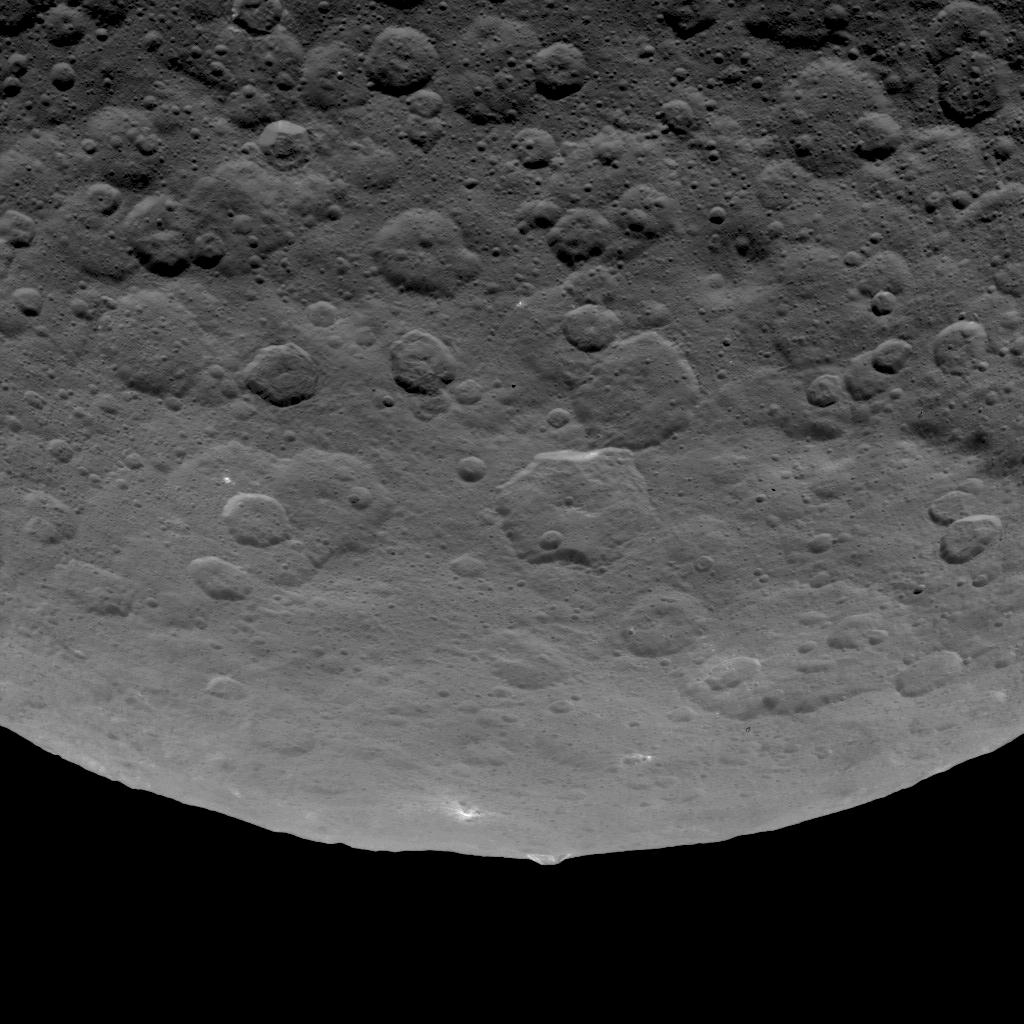
A 3-mile-high (5 kilometers) mountain dubbed "The Pyramid" juts from Ceres' limb in this photo by NASA's Dawn spacecraft.
Ceres Pyramid-Shaped Mountain
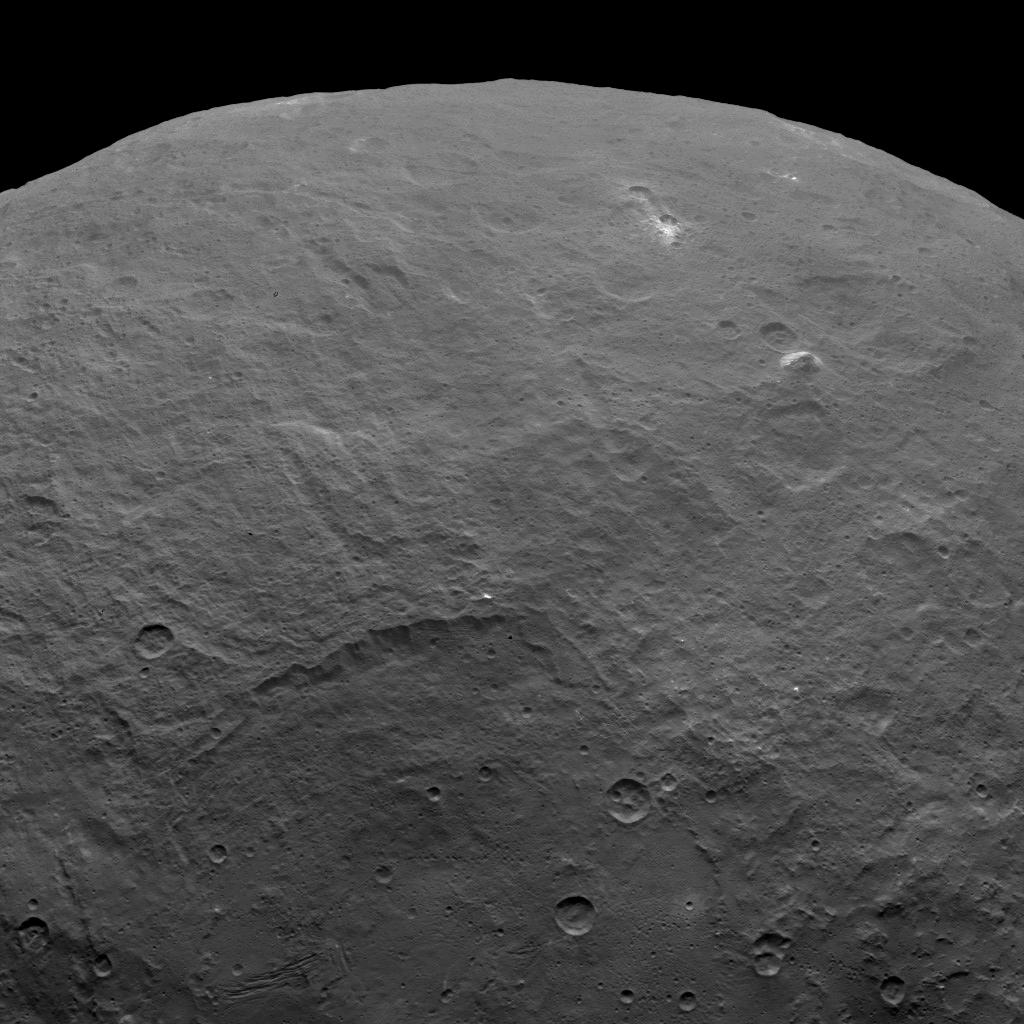
Dwarf planet Ceres contains a pyramid-shaped mountain estimated to rise about 3 miles (5 kilometers) above the surface. NASA's Dawn spacecraft took this image from an altitude of 2,700 miles (4,400 kilometers) on June 6, 2015.
Dawn Sees Giant Crater on Ceres
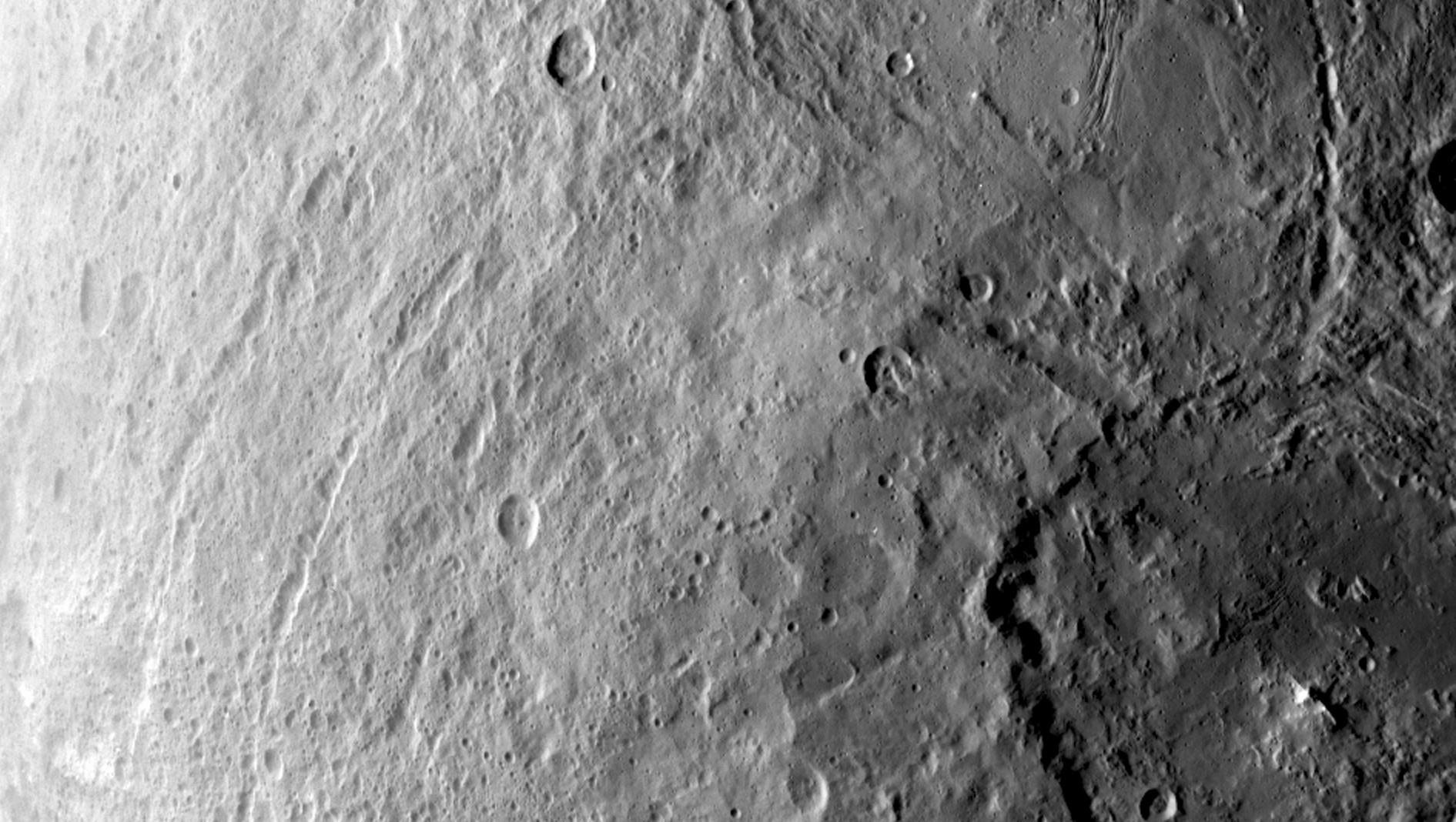
A large crater on the dwarf planet Ceres (lower right) is seen in this photo captured by NASA's Dawn spacecraft on June 6, 2015.
Dawn View of Ceres Craters
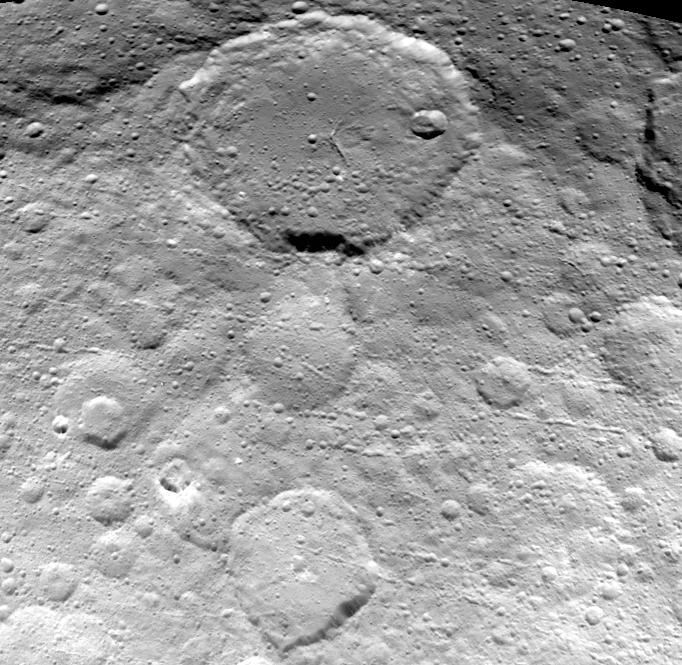
NASA's Dawn spacecraft captured this image of the dwarf planet Ceres' heavily cratered surface on May 23, 2015, from a distance of 3,200 miles (5,100 kilometers).
Ceres — Dawn Survey Orbit Image 9
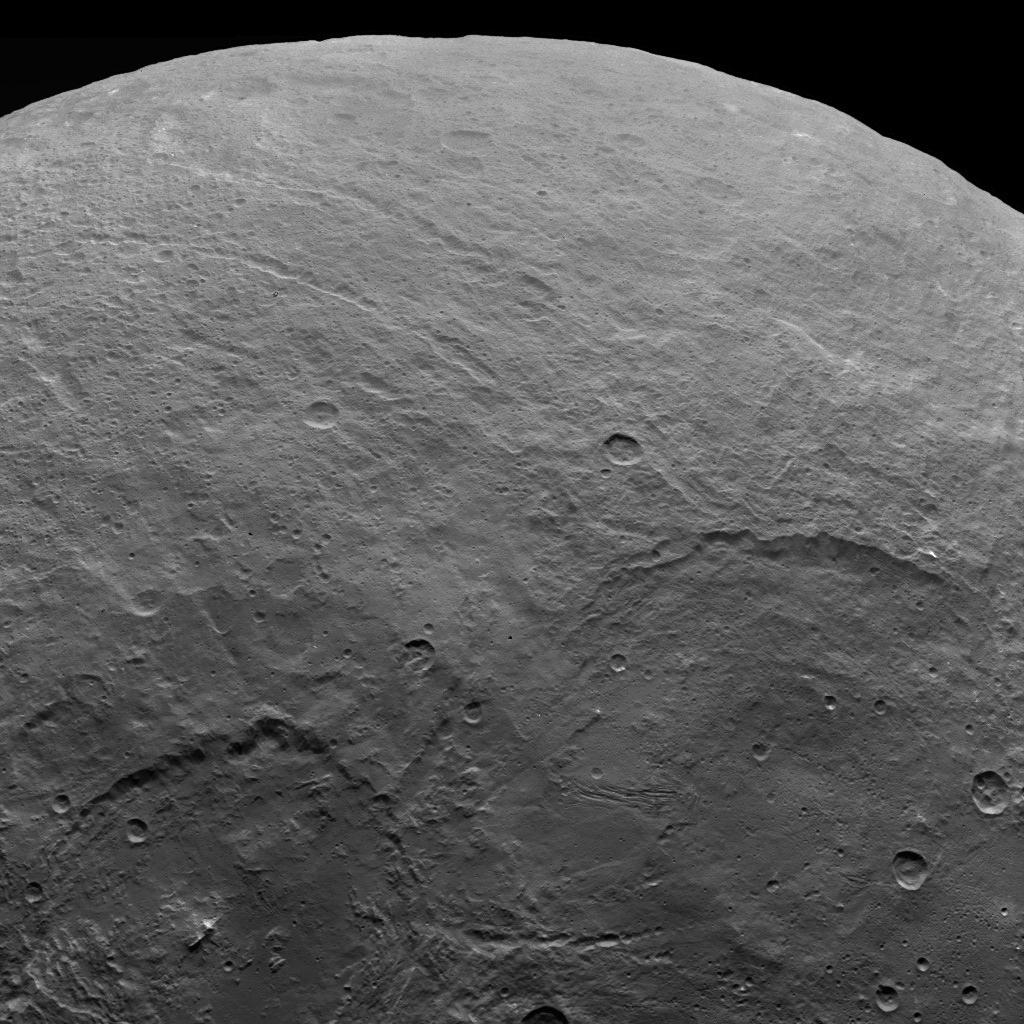
Ceres, a large dwarf planet in the solar system's asteroid belt, would present many challenges to settlers hoping to set up a colony like the one in the new SyFy channel's show "The Expanse."
Dimmer Companion Found for Bright Spot on Ceres
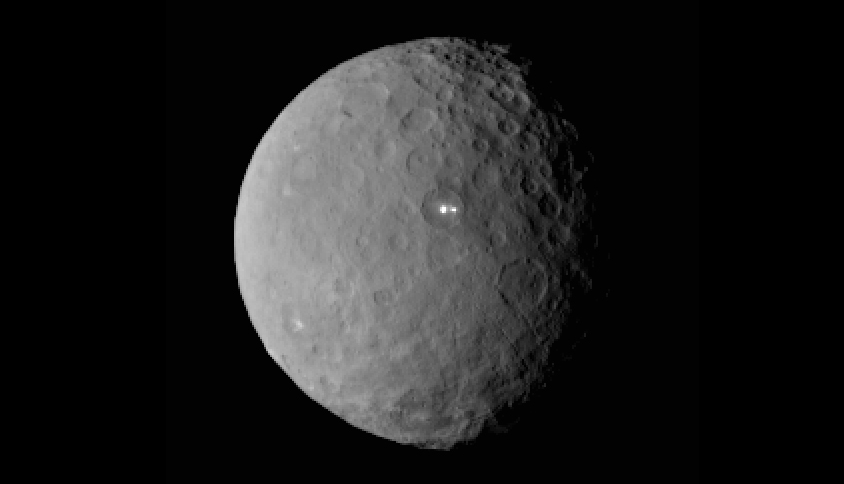
NASA's Dawn spacecraft viewed dwarf planet Ceres on Feb. 19 from a distance of nearly 29,000 miles (46,000 kilometers). The brightest spot on Ceres possesses a dimmer companion, which apparently lies in the same basin.
Dwarf Planet Ceres Seen During One Full Rotation
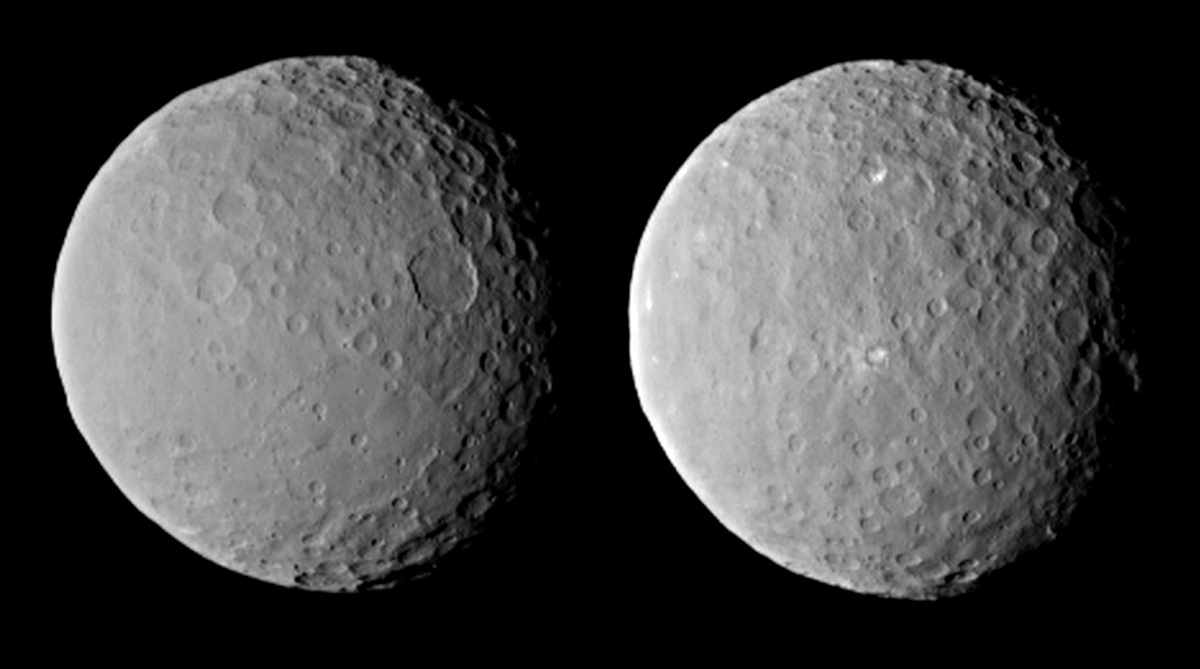
NASA's Dawn spacecraft took these images of dwarf planet Ceres, processed to enhance clarity, on Feb. 19, 2015, from a distance of about 29,000 miles (46,000 kilometers). Dawn observed Ceres for one full rotation, about nine hours.
Breaking space news, the latest updates on rocket launches, skywatching events and more!
Uncropped Images of Dwarf Planet Ceres
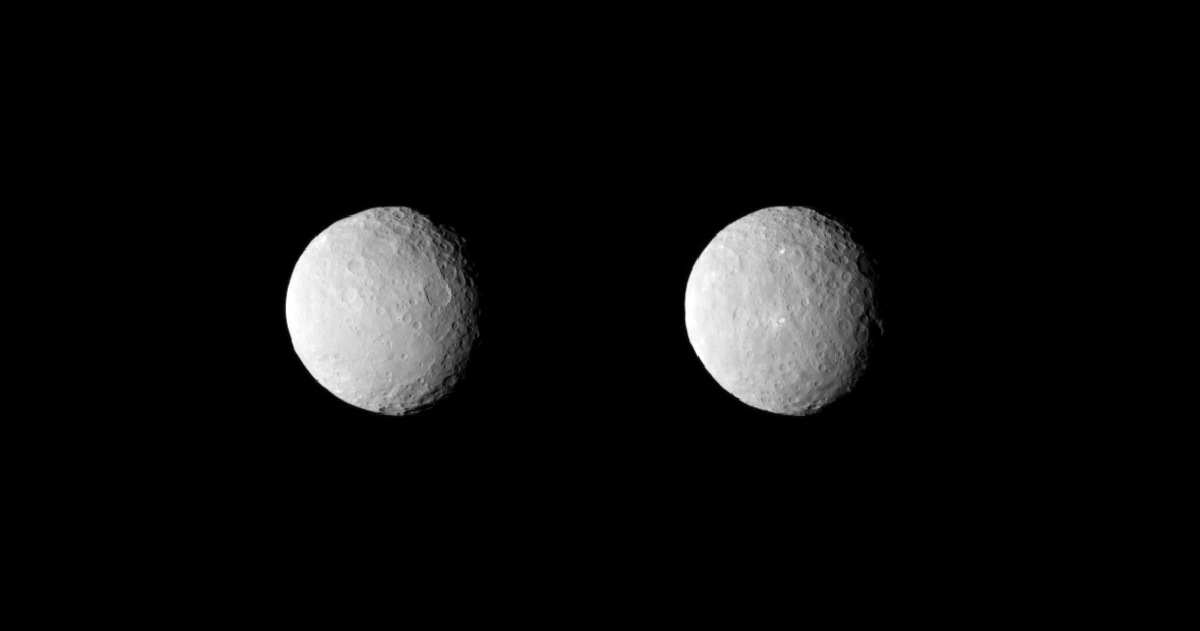
NASA's Dawn spacecraft obtained these uncropped images of dwarf planet Ceres on Feb. 19, 2015, from a distance of roughly 29,000 miles (46,000 kilometers). These images make up part of a series of photos taken as Dawn observed Ceres completing one full rotation, about nine hours.
What Are These Spots?
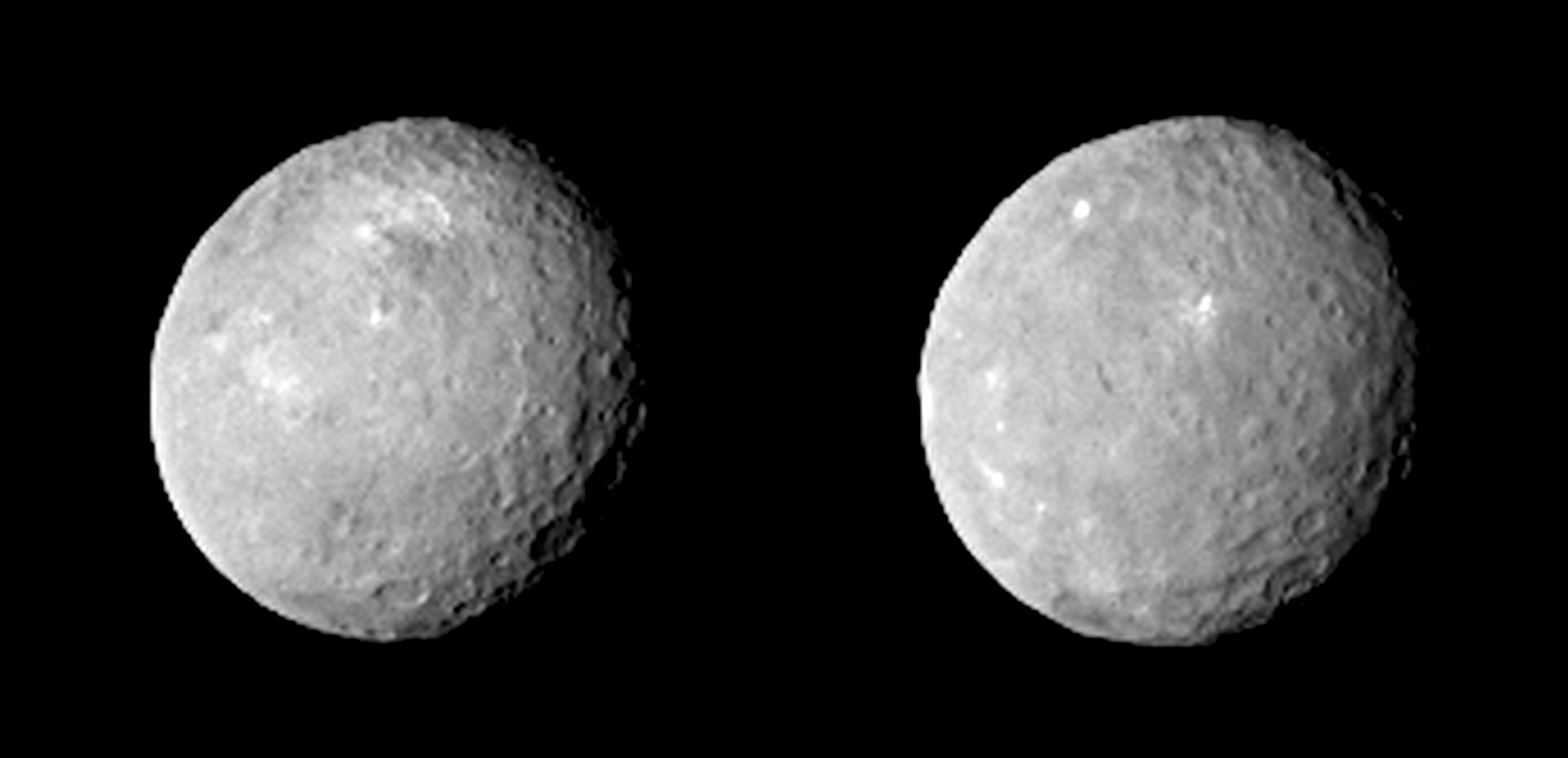
The strange bright spots on Ceres are taking center stage in new photos of the dwarf planet captured by NASA's Dawn spacecraft. Read the full story here.
Mystery White Spot on Ceres
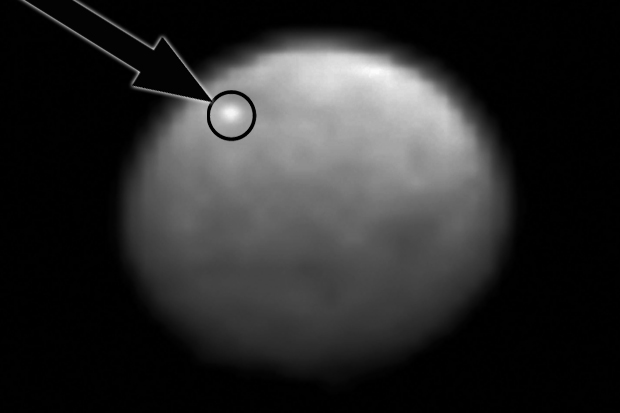
A mysterious white spot can be seen in the newest images from NASA's Dawn space telescope, which is rapidly approaching the dwarf planet.
Join our Space Forums to keep talking space on the latest missions, night sky and more! And if you have a news tip, correction or comment, let us know at: community@space.com.

Space.com is the premier source of space exploration, innovation and astronomy news, chronicling (and celebrating) humanity's ongoing expansion across the final frontier. Originally founded in 1999, Space.com is, and always has been, the passion of writers and editors who are space fans and also trained journalists. Our current news team consists of Editor-in-Chief Tariq Malik; Editor Hanneke Weitering, Senior Space Writer Mike Wall; Senior Writer Meghan Bartels; Senior Writer Chelsea Gohd, Senior Writer Tereza Pultarova and Staff Writer Alexander Cox, focusing on e-commerce. Senior Producer Steve Spaleta oversees our space videos, with Diana Whitcroft as our Social Media Editor.
